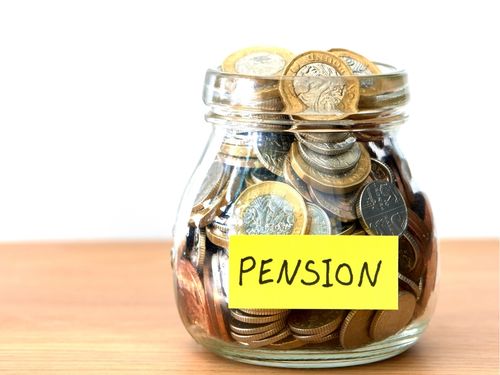Introduction
Finding a lost pension can be essential for securing your financial future, especially as retirement draws near. In the UK, it’s estimated that billions of pounds are held in unclaimed pensions, often due to changes in jobs, addresses, or providers. In this article, Luke James will guide you through the process of tracking down and reclaiming lost pensions, explaining how pensions become lost, what tools are available to help, and the steps you can take once you locate a pension. Whether it’s an old workplace scheme or a forgotten personal pension, recovering your pensions can boost your retirement savings and provide greater peace of mind.
How Do Pensions Become Lost?
Pensions can become lost for a variety of reasons. Sometimes, pensions may seem misplaced but are simply overlooked or tied to past employment records. Here are some common reasons why pensions may appear lost:
- Forgotten Employment Pensions: Many people have pensions from past jobs that they may have forgotten about, especially if they were short-term or temporary positions.
- Misplaced Documentation: Old pension statements or documents may be stored in forgotten locations or lost during a house move, making it easy to lose track.
- Lack of Updates: If you’ve moved house and haven’t updated your contact details with pension providers, you may miss out on key correspondence and assume the pension is lost.
- Merged Providers: Some pension providers merge or rebrand, which can lead to confusion over the current holder of your pension account.
- Contracted-Out Pensions: If you opted out of SERPS or another state-related scheme in the past, you may have a pension with a private provider you’ve since forgotten.
Verifying these common scenarios first may save time and ensure that your pension is indeed misplaced before undertaking a formal search.
Are You Sure Your Pension is Lost?
Before starting the search, it’s worth double-checking if your pension is genuinely lost. Look through any financial documents, old payslips, or correspondence with past employers, which may contain details about your pension schemes. Review bank statements for payments made to pension providers or check for emails or letters that mention previous pensions. If you suspect you have a pension with a specific provider, contacting them directly with as much information as possible can confirm if your account still exists.
Why Should I Try to Find My Old Pension?
Reclaiming lost pensions can significantly boost your retirement funds, allowing you to maximise your resources for future financial stability. Even small pension pots add up over time, often with accrued interest or investment growth. Recovering these pensions provides peace of mind, ensuring no funds are left unclaimed. Additionally, consolidating these pensions may streamline your financial management, reduce administrative fees, and enable a more effective retirement plan, helping you make the most of your hard-earned savings.
How Can I Track Down a Personal or Workplace Pension?
If you suspect you have a lost personal or workplace pension, there are several steps you can take to track it down. Gathering any available information on your past employment and previous pension schemes will help streamline the process. Here are six effective ways to locate a lost pension:
- Review Old Payslips and Employment Records: Payslips and tax documents from past jobs often contain details of pension contributions, which can lead you to the pension provider or scheme associated with that employer.
- Contact Previous Employers’ HR Departments: If you remember where you worked but don’t have pension details, reaching out to past employers’ HR or payroll departments can help. They can provide information on the pension scheme they offered and may direct you to the provider.
- Check for Emails or Letters from Providers: Look through your email or physical records for any previous communications from pension providers, which may have contact information or account details that can assist in your search.
- Speak with Financial Advisers You’ve Worked With: If you’ve ever consulted a financial adviser, they may have records or knowledge of pension accounts you had in the past, especially if you used them to set up or manage pensions.
- Contact Known Pension Providers: If you know the name of a pension provider but lack further details, contacting them directly with your personal identifiers—such as National Insurance (NI) number and employment dates—can help them locate any accounts associated with you.
- Request Help from the Pension Tracing Service: The UK government’s free Pension Tracing Service can provide contact details for pension schemes based on your former employer’s name, making it a useful tool for tracking down older pensions.
Following these steps will help you gather the details you need to track down lost pensions and get back in control of your retirement savings.

Locating lost pensions can significantly boost your retirement savings. Even small pots accumulate value over time, and reclaiming these funds is an easy way to make the most of your hard-earned contributions. Luke James - Chartered Financial Planner at Lucent
How Does the Government’s Pension Tracing Service Work?
The UK government’s Pension Tracing Service is a free resource designed to help individuals locate lost workplace or personal pensions. Using the database of pension providers, this service can direct you to the contact information for your pension provider, but it won’t provide details on the actual pension balance or account status. To use the service, you’ll need as much information as possible, such as the name of your employer, pension provider, and approximate dates of your employment. You can access this service online or by calling the Pension Tracing Service helpline on 0800 731 0175 or +44 (0)191 218 7777 if you’re outside of the UK.
Are There Other Ways to Trace My Old Pensions?
Aside from the Pension Tracing Service, there are other resources to help you locate pensions. Personal finance tracking tools, such as MoneyHelper or Unbiased, can offer guidance on pension recovery. Additionally, financial advisers can assist with pension searches, particularly if you’re considering consolidating multiple pension pots. Some people also contact HMRC, as they may have records of contracted-out pensions. These additional resources can offer personalised assistance, especially if your pension details are more complicated or difficult to trace.
Can I Find a Lost Pension with My NI Number?
Yes, your National Insurance (NI) number can be a valuable tool in locating a lost pension. Most pension providers require your NI number to verify your account, making it a critical identifier when contacting them directly. Providing your NI number, alongside your personal information and employment details, will help providers confirm whether they hold a pension in your name. If you’re using the Pension Tracing Service, have your NI number ready as it can speed up the process of verifying pension accounts with providers.
Is It Free to Reclaim an Old Pension?
Yes, reclaiming a lost pension is generally free if you contact the pension provider or use the government’s Pension Tracing Service. Some independent companies offer pension tracing services for a fee, but these aren’t necessary if you have the basic details needed to approach your provider directly. It’s important to avoid any third-party services that charge high fees, as you can reclaim lost pensions without incurring unnecessary costs. Be cautious of scams and verify any paid services with the FCA to ensure they’re legitimate.
How Do I Recover a SERPS Pension?
If you previously opted out of the State Earnings-Related Pension Scheme (SERPS) and paid into a private scheme instead, you may have a SERPS pension with a private provider. To recover this, contact any private pension providers you may have used in the past and ask if they hold any contracted-out pensions. You can also request a State Pension statement from the Department for Work and Pensions (DWP), which will show if you contracted out of SERPS and may help you locate the associated pension provider.
What Happens to Lost Pensions Over Time?
Lost pensions remain invested with their providers, where they continue to accrue value, often subject to fees. Pension providers may periodically try to contact you, but if you’ve moved without updating details, you might miss out on important information about fees or changes. Unclaimed pensions don’t expire, but their growth potential may be reduced due to administrative fees. Reclaiming these pensions ensures you’re aware of any fees and that you can make the best use of your accumulated savings.
Keeping pension documents organised is essential for effective retirement planning. A structured approach helps you avoid missing out on any pensions, making it easier to consolidate and track your funds over the years. Luke James
What Should I Do Once I Have Found My Old Pension?
Once you locate your old pension, request a statement to understand its value, fees, and investment growth. Review the terms to ensure it aligns with your retirement goals, considering factors like investment risk and projected returns. You may want to seek advice on whether consolidating your pensions could offer better management, lower fees, or improved returns. A financial adviser can help evaluate these options and ensure your pension is structured to meet your future needs.
Should I Consolidate My Pensions After Tracing Them?
Consolidating your pensions can simplify management, potentially reduce fees, and improve visibility over your retirement funds. Before consolidating, however, assess each pension scheme’s benefits, fees, and investment options, as some may offer advantages like guaranteed income or lower fees. Consolidation may also impact any tax-free allowances. Consulting a financial adviser can help you weigh the pros and cons of consolidating your pensions, ensuring you make an informed decision that suits your retirement strategy.
Tips for Organising Your Pension Documents
Keeping your pension documents well-organised can save you time and help ensure you don’t lose track of valuable retirement funds. Here are five practical tips to streamline your pension records:
- Create a Centralised Digital Folder: Set up a secure digital folder with all your pension documents, including statements, provider contact details, and policy summaries. Use cloud storage with strong password protection to access these files anywhere.
- Store Physical Copies in a Secure Place: For those who prefer hard copies, keep your pension documents in a dedicated, secure folder at home or in a safe. Label each document clearly to make future searches easier.
- Update Records Regularly: Each time you receive a pension statement or change your address, update your records to ensure they reflect the latest information. Regular updates prevent outdated details from causing confusion down the line.
- Maintain a Contact List for Pension Providers: Create a list of your pension providers and their contact information, including any reference or account numbers. This makes it easy to get in touch if you have questions or need updates.
- Set an Annual Review Reminder: Schedule a yearly review of your pension documents to ensure all records are current, organised, and complete. Reviewing regularly helps you stay on top of any necessary changes or adjustments.
Summary
Finding a lost pension can add significant value to your retirement savings, giving you access to previously unclaimed funds. By checking your records, contacting past employers, and using the government’s Pension Tracing Service, you can track down and recover your pensions. Once located, review each pension carefully and consider if consolidating your funds is a beneficial option for simplifying your finances. Keeping an organised record of your pensions going forward ensures that your retirement savings remain under your control, providing peace of mind as you plan for the future.
Disclaimer: This article does not constitute financial advice. We recommend that you speak to a qualified financial planner for advice tailored to your individual circumstances and goals. Financial markets may go up or down, and you are not guaranteed a return on your investment. Past performance is not necessarily a guide to future performance.









.jpg)




